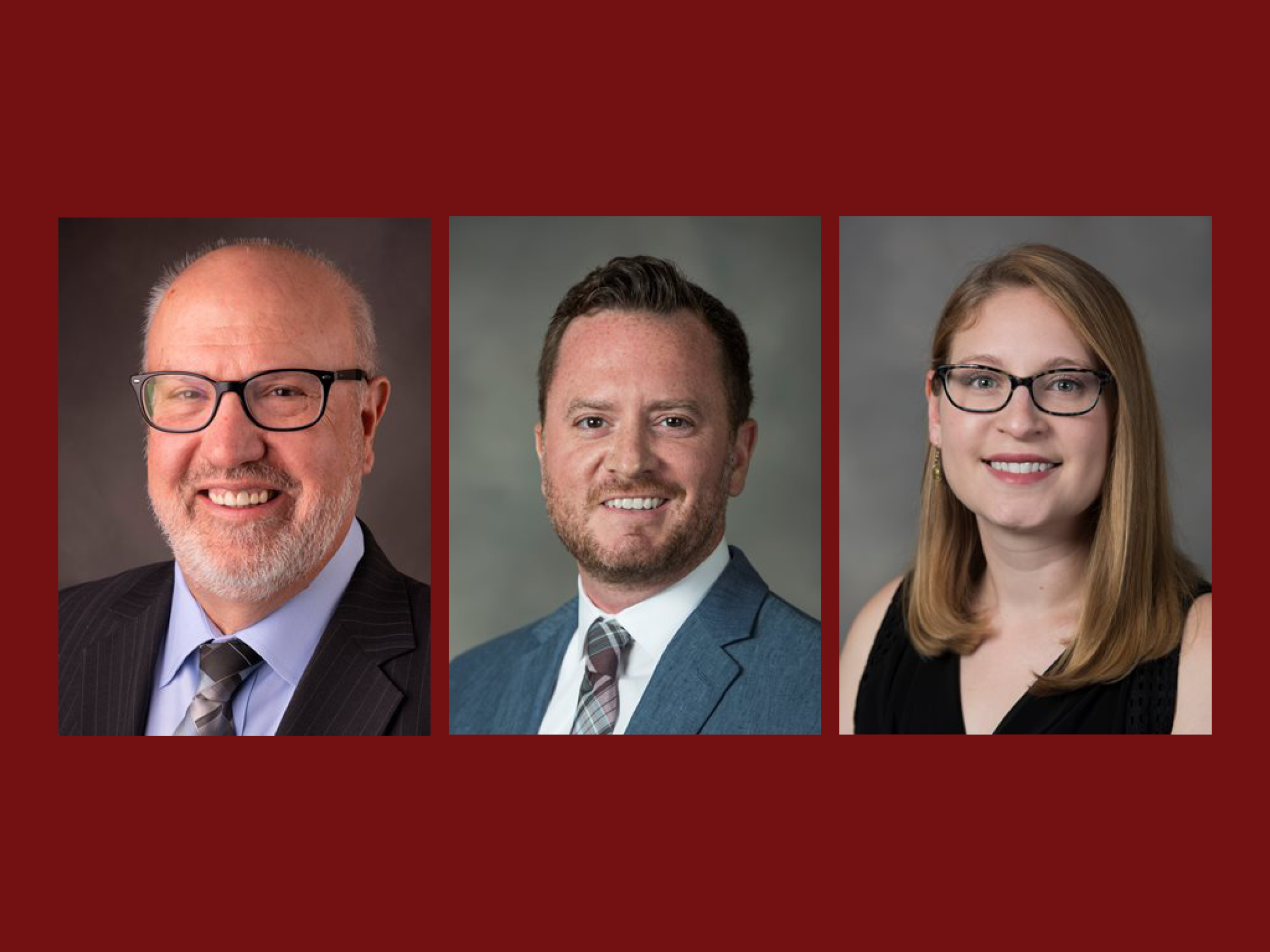In an era marked by rapid shifts in work arrangements, research co-authored by Robert Moorman, Brian Lyons, and Brittany Mercado in the Martha and Spencer Love School of Business looks at employee motivations for helping their companies and aiding their coworkers.
Three professors in the Martha and Spencer Love School of Business have co-authored new research on the way new types of work arrangements – flexible schedules, gigs, and remote work – are shaping how employees choose to go above and beyond assigned responsibilities in benefit to companies.
Drawing upon insights from decades of organizational behavior research, Professors Robert Moorman, Brian Lyons, and Brittany Mercado, along with Anthony Klotz from University College London, published “Driving the Extra Mile in the Gig Economy: The Motivational Foundations of Gig Worker Citizenship” in the most recent Annual Review of Organizational Psychology and Organizational Behavior.
The scholars focus on “organizational citizenship behaviors,” actions not within an employees’ job description that have a positive impact on the company. The study analyzes the impact of new work arrangements on the nature and expression of these behaviors such as aiding coworkers and championing organizational initiatives.
“We started our study because we realized that the usual way of thinking about voluntary work behaviors, which depends on having stable and long-lasting relationships at work, might not fit well with how flexible and changing today’s jobs are,” Moorman said.
The findings suggest a complex picture: while the core of OCBs—contributing positively to the organizational fabric—remains intact, the means and motivations behind these behaviors have transformed. “We found that people working in gig and flexible jobs show helpful behaviors for different reasons compared to those in regular jobs,” Lyons said. “These reasons include how fair they think their job is, how they want to be seen by others and how they interact with coworkers online.”
This understanding of OCBs in contemporary work settings not only enriches academic debates but also offers strategies for businesses navigating the gig economy, they said. It highlights the importance of fostering an environment where new forms of citizenship can flourish, despite the absence of conventional workplace relationships.
“Our research looks into the basic elements of voluntary work behaviors in today’s changing job market,” Mercado said. “It helps us understand how companies can build a strong sense of community and support among employees, even when the way we work is changing.”
This insight can be valuable for leaders and managers who want to make the most of their teams in a job market that has become more flexible.
The Elon professors are already using their scholarship to prepare business students for a future where understanding and leveraging the nuances of OCBs will be crucial for organizational success. “Our work not only informs future research directions but also serves as a critical resource for educating the next generation of business leaders about the complexities of organizational behavior in the gig economy,” Moorman said.
About the Professors
Robert Moorman is the Frank S. Holt Jr. Professor of Business Leadership at the Love School of Business. Prior to joining Elon in 2011, he held the Robert Daugherty Chair in Management at Creighton University. He received his Ph.D. in organizational behavior from Indiana University in 1990. Moorman teaches leadership and organizational behavior classes and his research interests include the study of leader integrity, work group cooperation, organizational justice, and the performance of organizational citizenship behaviors.
Brittany Mercado is an associate professor and chair of the Department of Management and Entrepreneurship at the Love School of Business. She joined Elon University in 2017 and previously taught at Baruch College, where she received her Ph.D. in management. She teaches courses in organizational behavior and human resource management. Mercado’s research focuses on understanding, assessing, and predicting employee performance, and her applied work helps organizations optimize their workforces via selection and assessment.
Brian Lyons is an associate professor of management in the Love School of Business. He joined the faculty in 2014 and previously taught at Wright State University and Fresno State. The OCB research builds on his grant that he is a co-investigator on with the Office of Naval Research. At Elon, Lyons teaches human resource management and organizational behavior courses. His research focuses on recruitment, selection, counterproductive work and off-duty behavior, and leadership effectiveness.



